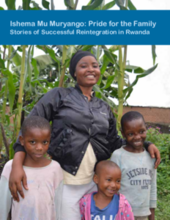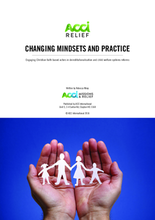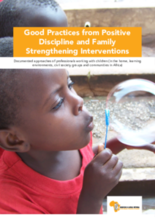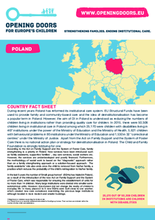Displaying 81 - 90 of 312
The purpose of this study was to examine the impact that the use of a Community Caregiver service provision model had on outcomes for children orphaned or made vulnerable by HIV/AIDS in Côte d’Ivoire.
This animated video describes Indonesia's Families First Signature Program which began in 2005. The goal of Families First is to ensure that every child in Indonesia has a safe, family environment, recognizing that family-based care is best for child development. The video describes how the Signature Program has helped shift care away from institutions towards family-based care.
This Study Brief provides a brief snapshot of the findings from a study of the functionality of Commune Committees for Women and Children (CCWCs) in Cambodia.
This report highlights stories of some children, youth and families who have been assisted under the Ishema Mu Muryango program. While each of their stories is unique, all highlight some common themes about institutionalization and child abandonment in Rwanda.
Five years ago, Child's i Foundation founder Lucy Buck set up a 25-bed 'transitional facility' to prove it was possible to place children in need of care into permanent families. Childs' i Foundation piloted an 'emergency care pilot' to see i
This tool was designed to help those seeking to assist Christian faith-based actors involved in long-term residential care programs make the transition from institutional to non-institutional (family and community-based) child welfare programs.
This study used cross-sectional data from 1848 South African children aged 9–13 to address three questions: whether CBOs are reaching those who are most vulnerable, whether attending these organizations is associated with greater psychosocial wellbeing, and how they might work.
The overall objective of this study was to deepen understanding on the experiences and support systems of grandparent-headed households with children of prisoners (CoP) in Uganda.
This document highlights examples of good practices in parenting and family strengthening interventions based on evaluations of programs and initiatives throughout Africa.
This Country Fact Sheet discusses Poland’s recent reforms to its institutional care system.





